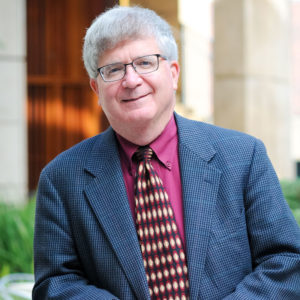Trump’s Not Wrong About Pardoning Himself
This commentary first appeared in the Washington Post on June 8, 2018

When President Trump tweeted that he has the constitutional authority to pardon himself, he likely weakened his case in the minds of most ordinary people. Why would he talk about pardons if he hasn’t done anything for which he might need one? But as a legal and constitutional matter, Trump is not wrong. Presidents do have the constitutional authority to pardon themselves, albeit at the considerable risk of impeachment if they do so.
The president’s pardon power was intentionally made broad, even though the framers of the Constitution were well aware that it could be abused. They understood the pardon as an essential final check against miscarriages of justice and overly harsh applications of the letter of the law — and more importantly, as a device for national reconciliation after episodes of political unrest. George Washington used the power this way after the Whiskey Rebellion, Abraham Lincoln after the Civil War, and Jimmy Carter after Vietnam.
Article II, Section 2 of the Constitution says the president “shall have Power to grant Reprieves and Pardons for Offenses against the United States, except in Cases of Impeachment.” The exception for impeachment shows that the clause extends to presidential misconduct, and suggests the ultimate remedy is impeachment by the House and conviction by the Senate, rather than criminal prosecution.
But we do not have to guess. Two days before the Constitutional Convention voted in 1787 to approve the final draft, Edmund Randolph of Virginia moved to narrow the president’s pardon power on the ground that it “was too great a trust. The President himself may be guilty.” His point was supported by none other than James Madison. But James Wilson of Pennsylvania, the finest lawyer among the delegates and later a justice on the first Supreme Court, stressed the importance of the pardon power and argued that if the president “be himself a party to the guilt, he can be impeached and prosecuted.” (“Prosecuted” meant prosecuted before the Senate.) Randolph’s motion was defeated eight states to two, with one state divided.
The framers of the Constitution thus specifically contemplated and debated the prospect that a president might be guilty of an offense and use the pardon power to clear himself. They concluded that the remedy of impeachment by the House and conviction by the Senate was a sufficient check on the possibility of abuse.
No court has ever considered the question because it has never come up. Four days before President Richard M. Nixon resigned, a Justice Department attorney drafted an “outline” for a “more definitive memorandum.” The entirety of the analysis was a single sentence: “Under the fundamental rule that no one may be a judge in his own case, it would seem that the question should be answered in the negative.” Lacking any discussion of precedent, constitutional text, history or principles of separation of powers, this early-stage outline has no persuasive content. In our system, the ultimate authority over execution of the laws rests with the president, the only constitutional officer (other than the vice president) elected by all the people. That is what Article II says, and this is no time to be wandering away from the constitutional rules of engagement.
The pardon power has certainly been abused — President Bill Clinton’s 11th-hour pardons of Marc Rich and others being prominent examples — but the courts have always honored the absolute character of this constitutional prerogative. This ruling from the Supreme Court in Ex parte Garland (1866) is typical: “The power of pardon conferred by the Constitution upon the President is unlimited except in cases of impeachment. It extends to every offence known to the law, and may be exercised at any time after its commission, either before legal proceedings are taken or during their pendency, or after conviction and judgment. The power is not subject to legislative control.”
In the unlikely (I hope) event the Mueller-Trump imbroglio intensifies to the point that a self-pardon could even be seriously contemplated, and in the absence of “smoking-gun” evidence of real wrongdoing, the prosecution will precipitate a constitutional crisis, in which the motives and conduct of both sides — the FBI and the special counsel no less than the president and his campaign — will be at issue. The proper forum for resolution of charges and countercharges of that momentous sort is among the representatives of the people. The prospect is horrible to contemplate, but it is less horrible than subordinating the elective choice of the people to the secretive world of special counsels, redacted documents and legalistic arguments. Should Robert S. Mueller III’s interminable investigation of Russian collusion produce anything like a criminal charge against the president, the ensuing debate should be in the open and subject to full democratic accountability. That was the wise decision of the framers. It is no less wise today.
Michael W. McConnell is the Richard and Frances Mallery professor of law and director of the Constitutional Law Center at Stanford Law School and a senior fellow at the Hoover Institution. He formerly served as a judge on the U.S. Court of Appeals for the 10th Circuit.
